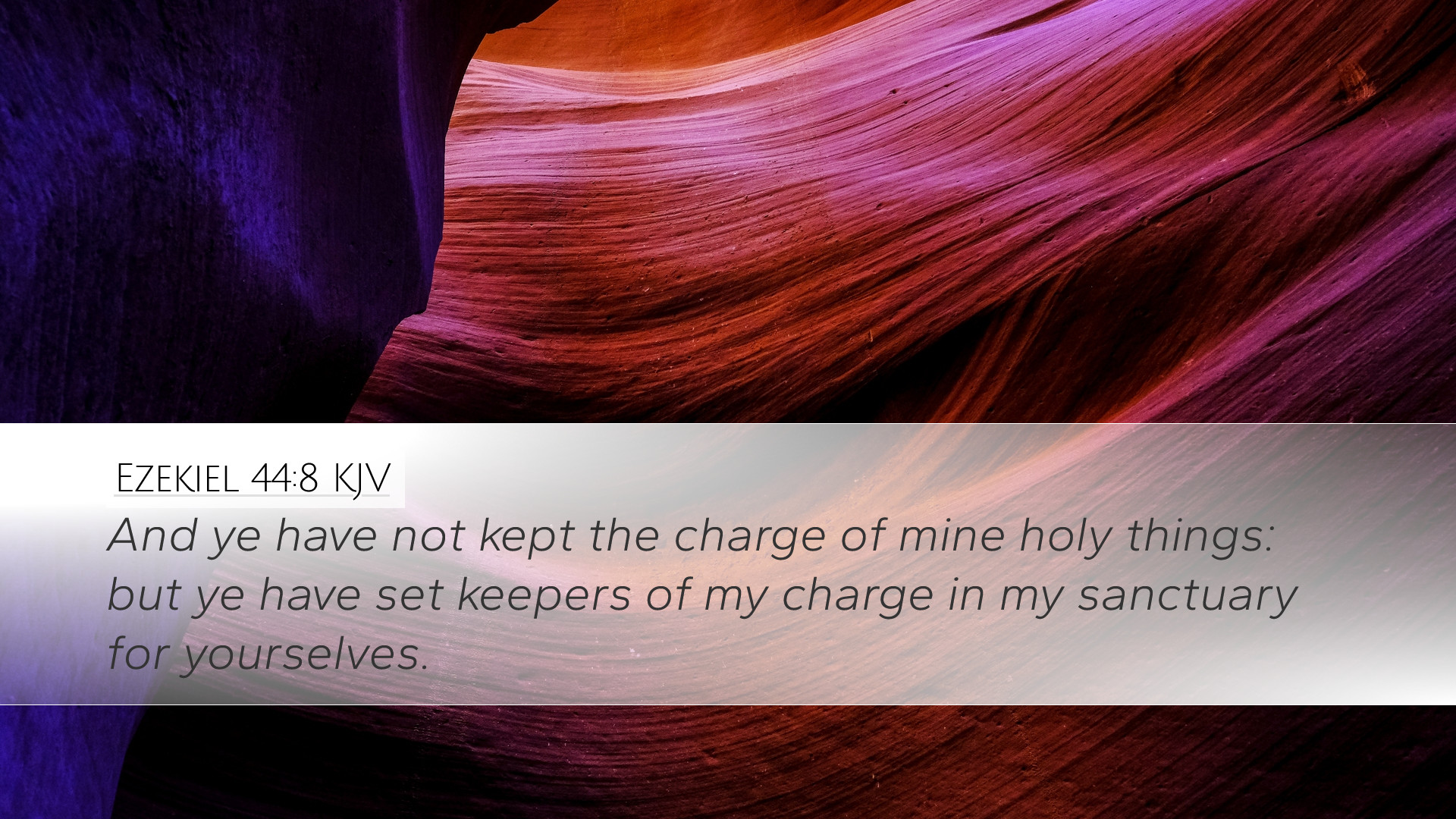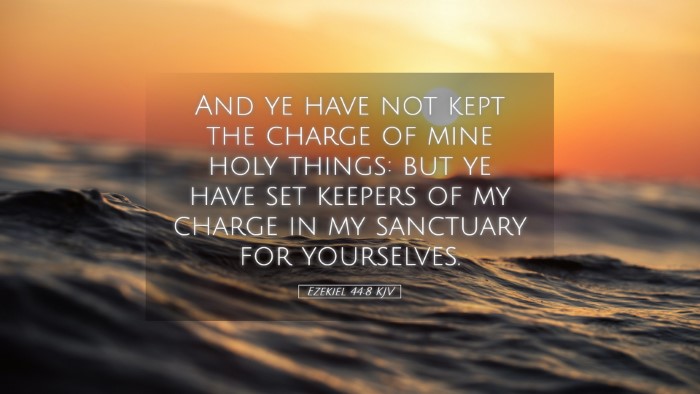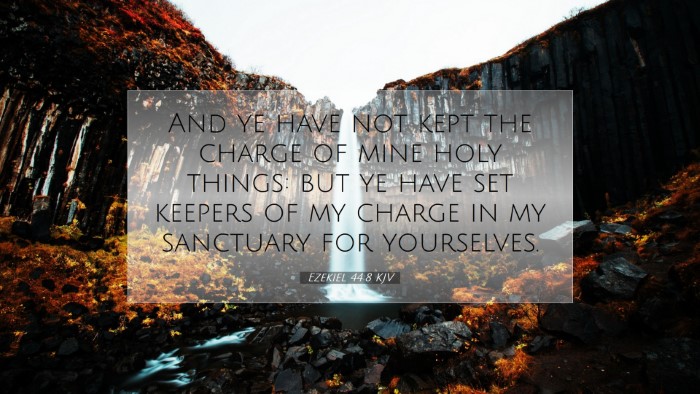Ezekiel 44:8 Commentary
Verse: "And ye have not kept the charge of mine holy things: but ye have set keepers of my charge in my sanctuary for yourselves."
Introduction
The book of Ezekiel addresses several themes such as the holiness of God, the responsibilities of the temple officials, and the consequences of not adhering to God's commands. In this verse, God laments the failure of the officials to maintain the sanctity of His holy things. This commentary synthesizes insights from various public domain commentaries, providing a deep exploration of this crucial text.
The Context of Ezekiel 44
Ezekiel 44 marks a pivotal moment in the prophetic narrative. It presents a vision of the future temple and the restoration of proper worship in Israel after years of idolatry and defilement. This chapter contrasts the responsibilities of the sons of Zadok, who remain faithful, with those unfaithful priests who neglected the sanctity of their roles.
Historical Background
Matthew Henry emphasizes the historical context where Ezekiel is speaking to the exiled people of Israel. They had strayed from God's commandments, leading to their present state of captivity. God, through Ezekiel, reassures them of a future restoration, but stresses the importance of maintaining holiness and proper worship.
Understanding 'The Charge'
Albert Barnes notes that the "charge" refers to the sacred duties and responsibilities placed upon the priests and Levites. The phrase “kept the charge” signifies not just a surface-level adherence but a profound commitment to their roles as custodians of divine worship.
Adam Clarke further analyzes this term, suggesting that the failure to preserve the charge reflects a broader spiritual disobedience. The priests were to exemplify holiness, but instead, they permitted corruption to infiltrate the sacred space.
Theological Implications
This passage raises several theological questions regarding divine expectations of leadership and the communal aspect of holiness.
1. Leadership and Responsibility
Pastors and church leaders today must recognize the weight of their responsibilities. As noted by Henry, the emphasis is on the leaders' obligation to uphold God's standards. Their failure impacts not merely their standing before God but also the spiritual health of the entire community.
2. Holiness and Consecration
Clarke emphasizes that holiness is not optional but foundational to worship. The act of setting "keepers of my charge in my sanctuary for yourselves" implies a corruption of purpose. Leaders must remember that their role is to serve God, not themselves. In this light, it compels all believers to examine their motives and the sanctity of their service.
Application for Today
For contemporary pastors, students of theology, and scholars, this verse serves as a profound reminder of accountability before God. The admonition in Ezekiel 44:8 invites a reevaluation of how ministry is approached.
1. Commitment to God's Standards
- Leaders Must Set an Example: As per Barnes, spiritual leaders ought to exemplify what it means to honor God in their conduct and teaching.
- Care in Choosing Leaders: The responsibility lies not only with current leaders to maintain holiness but also with congregations to select leaders who are spiritually mature and devoted.
2. The Consequences of Neglect
The neglect of God's commands brings dire consequences, as highlighted by Henry. Leaders who fail to maintain the holiness of God’s house risk leading others into spiritual jeopardy.
3. Restoration Through Repentance
Clarke assures us that despite the failures, God offers restoration to those who repent. There is hope for renewal in both personal and corporate spheres of worship.
Conclusion
Ezekiel 44:8 is a stark reminder of the sacred duty entrusted to spiritual leaders. It calls forth a higher standard of holiness and an unyielding commitment to the divine charge. By examining this scripture in conjunction with the insights of biblical scholars, we are encouraged to aspire for integrity and authenticity in our own spiritual practices.


